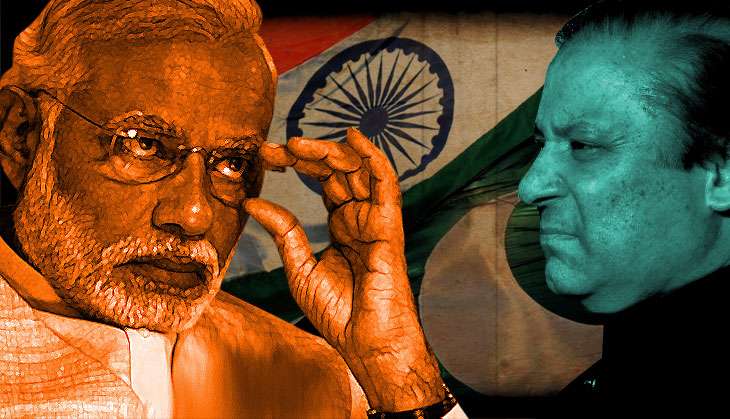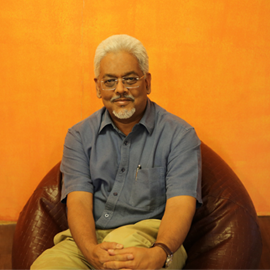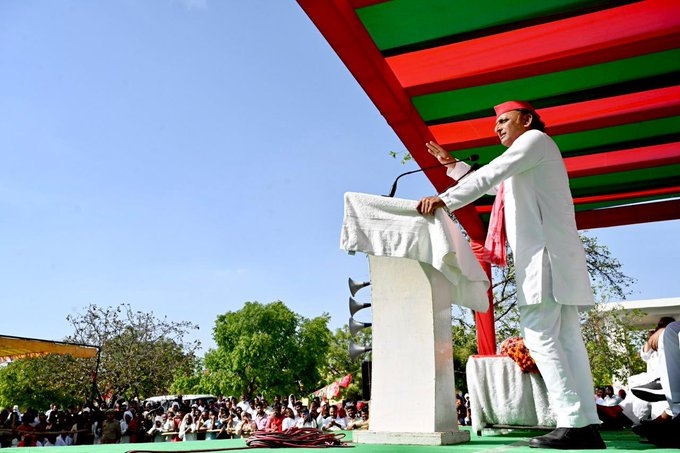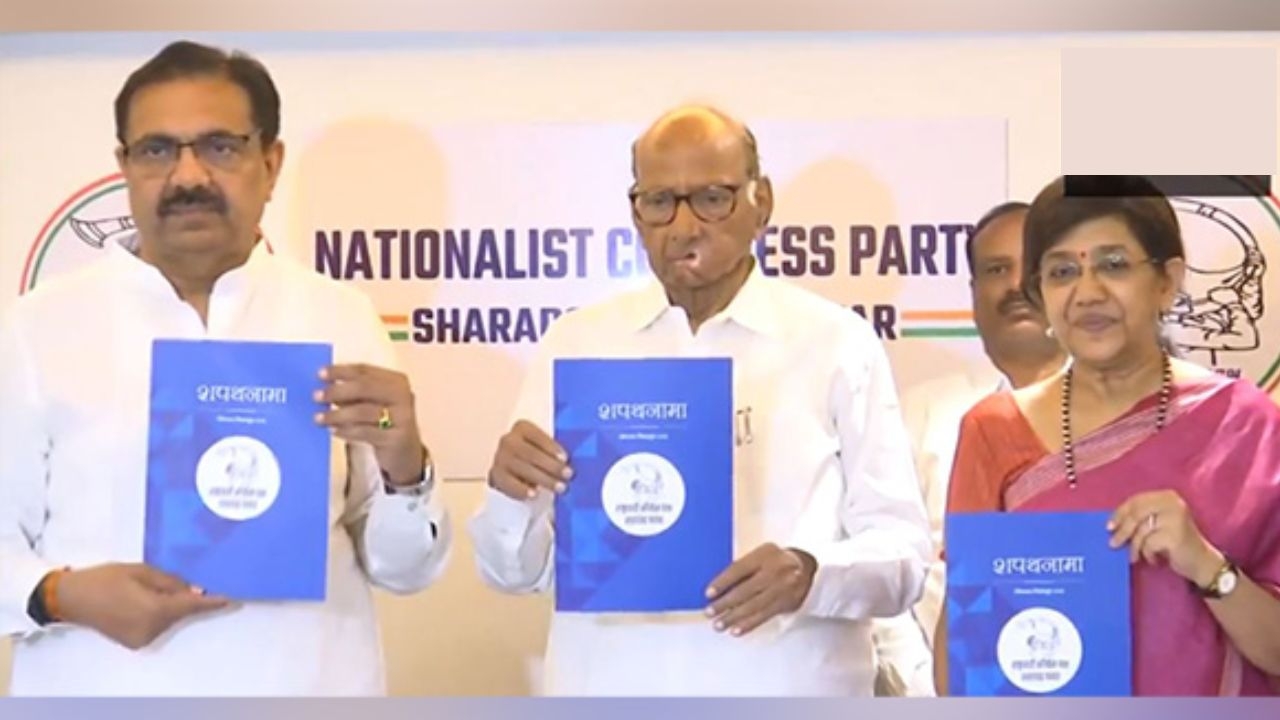Don't be fooled by his Balochistan rhetoric, Modi's Pakistan policy is rash

Raising the issue of Pakistan's terrorism at all available global fora plays well with the domestic audience. But whether Prime Minister Narendra Modi's efforts will lead to the isolation or marginalisation of Pakistan internationally remains to be seen.
There is no certainty that even the US, with whom India is trying to forge closer strategic ties, will give up on Pakistan.That the US will continue to assuage both sides was evident from US Secretary of State John Kerry's statements during his recent visit to India.
At one point, sitting next to External Affairs Minister, Sushma Swaraj, Kerry seemed to suggest that peace talks between India and Pakistan could not be sustained in the face of terrorism. He said, "It is vital that Pakistan join other nations in tackling these issues (terrorism and sanctuary for militants)."
Also Read: Modi's Pakistan policy is unclear and confusingA day later, however, while still in New Delhi, Kerry suggested that Pakistan had also suffered greatly due to terrorism and talked of the "blowback" Pakistan had suffered by acting against terrorism. "More than 50,000 people have been killed...people define a great religion Islam in a way that doesn't reflect that religion. They steal it, hijack it. When Pakistan does take action, there's usually pretty intense pushback and blowback which makes it (tackling terror) harder," he said.
This is not merely a recognition that homegrown terrorism exists in Pakistan. It also underlines the US desire to keep Pakistan on its right side. It requires Pakistan's help in its efforts to bring peace to Afghanistan. After all, the entire Taliban leadership and the leaders of its various factions continue to be hosted by Pakistan. US compulsions in Afghanistan were evident when it agreed to a role for Pakistan's 'all weather friend' China in a quadrilateral dialogue (Afghanistan, US, Pakistan and China) - to start a reconciliation process with the Taliban.
Not one to be ignored
The relationship between Pakistan and Afghanistan is not sufficiently appreciated in India. It is as close and as complicated as the relationship between India and Nepal. There is an open border between the two countries, the ethnic composition of the population on both sides of the border is the same and the links of the hinterland with the larger and more powerful neighbour are strong. What's more, the bigger neighbour gives Afghanistan its only access to warm water ports. Geography and cultural links make the relationship almost impossible to break in the short to medium run. Afghanistan will always be compelled to seek good relations with Pakistan just as Nepal does with India.
The relationship between Afghanistan and Pakistan is also complicated by the fact that all Afghan armed insurgents find safe haven, training and an unlimited supply of weapons in Pakistan. It gives Pakistan a huge leverage in stabilising or destabilising Kabul's politics and deciding who controls it. India's strategic role in Afghanistan, even with US encouragement, is unlikely to go beyond giving a bit of military hardware and training to Afghan security forces.
Also Read: 'Foreign policy cannot be left to a policeman like Ajit Doval'Thus, irrespective of how strong the strategic relationship between the US and India or India and Afghanistan, Washington cannot afford to ignore Islamabad. This is why the Indian strategy of trying to isolate Pakistan amidst big international players like the US, is unlikely to be effective.
The diplomatic potential of the Prime Minister's new aggressive line on Balochistan is also uncertain.
There are those who think that raising the Balochistan issue is a fitting riposte to Pakistan for their role in Kashmir. By speaking on Balochistan one also draws attention to the fact that there is a major component of internal misgovernance to the Kashmir problem. Not everyone believes that every protest in Kashmir is orchestrated by puppet masters sitting in Pakistan. One hopes therefore that this is a calibrated strategy that allows for dynamic modification, including a graceful retreat from the current aggressive posture if relations with Pakistan improve.
Running from reality
Unfortunately, the government in power today has suddenly decided not to recognize Kashmir as an unresolved issue with Pakistan. It refuses to talk with either Pakistan or to the pro-Azadi factions of the separatists (as opposed to people like Syed Ali Shah Geelani who act as agents of Pakistan). It supports and is a part of an unpopular alliance of unlikely political partners in Srinagar who do not see eye to eye with each other and whose constituencies are as different from each other as chalk and cheese.
Delhi takes a long time to take corrective action when Kashmiris either suffer natural calamities, such as the floods of 2014, or at the hands of the paramilitary forces (such as using pellet guns to control protestors leading to eye injuries).
Aggressive statements about human rights in Balochistan will not improve the condition of the people of Kashmir, the impunity of the Indian security forces or do away with the history of suffering of the Kashmiris.
Also Read: Congress warns that supporting Balochistan may back fireMeanwhile, in one fell swoop, the PM's Balochistan gambit has taken away the deniability of the Indian intelligence agencies for any past or present role they may have had in intelligence gathering operations in Balochistan. Henceforth, every incident that takes place in Balochistan is likely to be blamed on India. The alleged Indian spy Kulbhushan Jadhav will continue to be paraded by Pakistan as proof of India's involvement in that restive province.
If for a moment India were to seriously consider taking the Balochistan issue beyond the level of rhetoric, replicating Pakistan's strategy in Kashmir, a plan of action pushed on TV channels by Indian hawks, we would have to factor in the response of countries other than Pakistan.
The homeland of the Baloch is divided between Pakistan, Iran and Afghanistan. There is no evidence of any awareness in the policy-making establishment of how Iran and Afghanistan might react to India upping the ante on Balochistan.
Iran which is a Shia state has managed to exploit the energy and natural resources of Sistan Baluchistan but the Baloch population living there is a religious minority practicing Sunni Islam. Some estimates suggest that 80 per cent of the Baloch in Iran live below the poverty line, their life expectancy is eight years less than the national average and their infant mortality rates are the highest in the country.
Disgruntled Baloch elements in Iran have formed the Jundullah, which leads an insurgency against the Shiite-regime in Tehra. Under attack, Jundullah militants find safe-havens on the Pakistan side of Balochistan. Therefore, any ratcheting of violence on the Pakistani side of Balochistan by India, could have direct consequences for Iran. Forces inimical to Iran, such as the Saudis, could also launch a false flag operation there, where the blame could fall on India.
The point is unless the consequences of raking up the Balochistan issue are fully thought through, and carefully calibrated strategies for graceful retraction planned for, precious little is likely to be achieved in the long term.
And most importantly, the Indian PM must identify what India wants to achieve with Pakistan. Do we want peaceful co-existence, if not friendship, with Pakistan or do we want to be in a state of constant war mongering, threatening each other with worse things to come? Impetuous declarations will not help find lasting answers to these questions.
Also Read: Kashmir unrest: how RSS ideology blinds Modi govt to the reality
First published: 12 September 2016, 9:42 IST



_251371_300x172.jpg)


![BJP's Kapil Mishra recreates Shankar Mahadevan’s ‘Breathless’ song to highlight Delhi pollution [WATCH] BJP's Kapil Mishra recreates Shankar Mahadevan’s ‘Breathless’ song to highlight Delhi pollution [WATCH]](http://images.catchnews.com/upload/2022/11/03/kapil-mishra_240884_300x172.png)

![Anupam Kher shares pictures of his toned body on 67th birthday [MUST SEE] Anupam Kher shares pictures of his toned body on 67th birthday [MUST SEE]](http://images.catchnews.com/upload/2022/03/07/Anupam_kher_231145_300x172.jpg)






